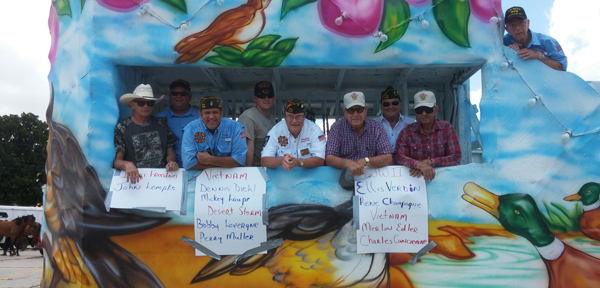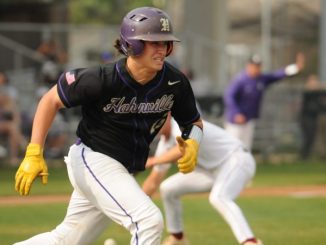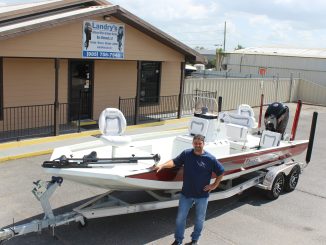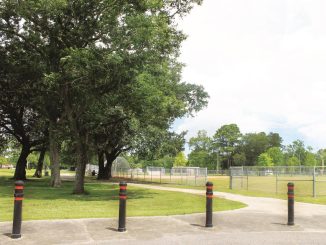
Rene Champagne of Luling considers himself a fortunate man.“As a young boy, I said I would go into the Navy – not the Army,” Champagne said. “I finished school at 17 and signed up but I didn’t leave until I was 18.”
Actually, it was a week before his birthday that he headed for basic training in San Diego, Calif., like many other young men headed to World War II that started Sept. 1, 1939. And like many of those young men, he wondered what was next for him.
The answer soon came.
“When I finished boot camp, they sent five us to Texas A&M University to become radio operators,” said Champagne. “I always wanted to go to Europe and I had my chance.”
An unexpected advantage helped him pass the test that put him on the fortunate path of serving as a radio operator. Many of his buddies went to amphibious forces, which would have required him storming out of vessels landing on enemy shores.
“I was in the Boy Scouts,” Champagne said. “I knew the International Morse Code.”
As a radio operator, he intercepted messages, but he handed them over to the communications officer to be decoded in a closed room. He wasn’t responsible for the communiqués.
“We copied everything that came over – four hours on and four off shifts,” Champagne said.
And, like many serving in wartime, he traveled extensively and loved it.
From Norfolk, Va., Champagne went to Key West, Fla., and from there he was placed on a PCE-843 patrol escort vessel. It was a small craft with a crew of 110 and it was casual, Champagne recalled. Instead of uniforms, they wore regular shirt, shorts and shoes, which he enjoyed.
“We were like one big happy family,” he said of doing this all again if needed.
Their travels included Bora Bora island and onto Hollandia, the capital of Netherlands New Guinea, as well as to stops that included the Philippines, Borneo (the largest island in Asia) and Guam.
“I got to see part of the world,” he said.
Throughout these travels, the U.S. Naval Base Subic Bay served as their home port.
Champagne also served during the beginning of nuclear testing at Bikini Atoll, involving a series of 23 nuclear devices detonated by the U.S. between 1946 through 1958. He was on patrol when the U.S. dropped two atomic bombs on Japan, the first on Hiroshima on Aug. 6, 1945 and then two days later on Nagasaki.
“It was something to think about,” he said. “I just think it was something they had to do to stop the war.”
Again describing himself as fortunate, he noted, “I didn’t see any action – just convoy duty. We did escort duty.”
Although he practiced rolling depth charges off a boat deck into the water in the hunt for enemy submarines, he said he never had to drop one for real.
“Like I said, I was fortunate,” Champagne said. “You had to do it – you did it.
After the war ended on Sept. 2, 1945, Champagne continued to serve on weather patrol.
“We covered a 500-mile radius,” he said of this duty. “After that, we finished and went to Pearl Harbor (Honolulu, Hawaii), stayed there four to five days, picked up supplies and went to San Pedro, Calif.”
By the time Champagne saw Pearl Harbor it was several years after the Dec. 7, 1941 Japanese attack of the military base, but he recalled seeing the nearly submerged superstructure of the USS Arizona that is today a memorial to the soldiers who died in the attack.
When he got to San Pedro, that is when Champagne got off the ship. By then, he had served 25 months in the U.S. Navy, having served from 1944 to 1946. At age 90, many of this WWII buddies are gone now.
“I don’t regret one minute of it because you knew you had to go,” Champagne said. “A job had to be done and we did it. If we wouldn’t have done what we did we might not be a free country today.”




Be the first to comment